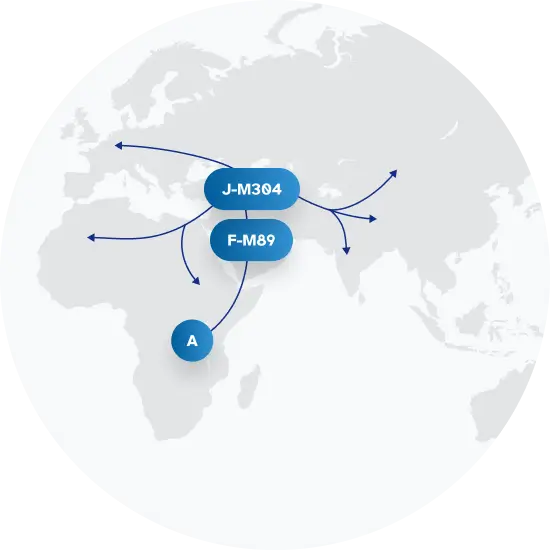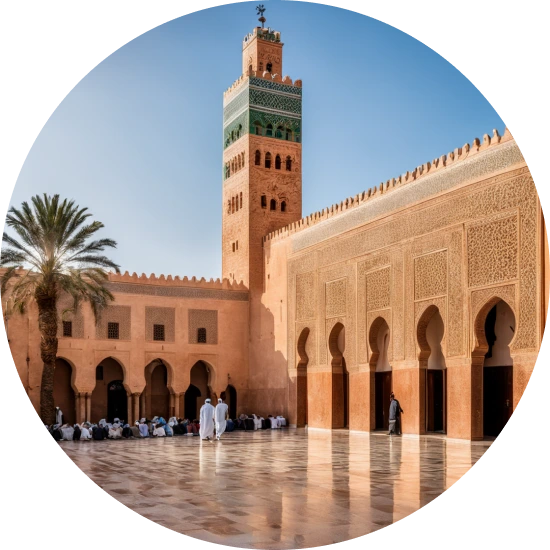Explore the Family Name Wald
How common is the last name Wald in the United States?
According to the data sourced from the Decennial U.S. Census, the surname Wald has seen a decrease in popularity between 2000 and 2010. In 2000, it ranked as the 6384th most popular surname, with a count of 4910 individuals bearing it in the United States. By 2010, the rank had slipped to 8172, marking a change of -28.01%. The total count also decreased by -17.37% to 4057 individuals, lowering the proportion per 100k from 1.82 to 1.38, a change of -24.18%.
| 2000 | 2010 | Change | |
|---|---|---|---|
| Rank | #6,384 | #8,172 | -28.01% |
| Count | 4,910 | 4,057 | -17.37% |
| Proportion per 100k | 1.82 | 1.38 | -24.18% |
Race and Ethnicity of people with the last name Wald
The Decennial U.S. Census data on the ethnic identity associated with the surname Wald shows some shifts between 2000 and 2010. The percentage of Wald bearers identifying as Asian/Pacific Islander rose significantly by 140.00% from 2000 to 2010, though they still only represent 1.08% of all Walds. Similarly, those identifying as Hispanic saw an increase of 27.33%. However, the number of Wald bearers identifying as Black decreased by -12.40%. Individuals claiming two or more races remained roughly steady, with a slight decrease of -1.45%. White Wald bearers constituted the majority both years, although their proportion slightly declined from 92.38% to 91.74%. American Indian and Alaskan Native representation among Wald bearers also saw a minor increase of 10.64%.
| 2000 | 2010 | Change | |
|---|---|---|---|
| White | 92.38% | 91.74% | -0.69% |
| Black | 3.71% | 3.25% | -12.4% |
| Hispanic | 1.61% | 2.05% | 27.33% |
| Two or More Races | 1.38% | 1.36% | -1.45% |
| Asian/Pacific Islander | 0.45% | 1.08% | 140% |
| American Indian and Alaskan Native | 0.47% | 0.52% | 10.64% |
Wald ancestry composition
23andMe computes an ancestry breakdown for each customer. People may have ancestry from just one population or they may have ancestry from several populations. The most commonly-observed ancestry found in people with the surname Wald is French & German, which comprises 29.2% of all ancestry found in people with the surname. The next two most common ancestries are Ashkenazi Jewish (27.1%) and British & Irish (19.9%). Additional ancestries include Eastern European, Scandinavian, Italian, Spanish & Portuguese, and Indigenous American.
Ready to learn more about your ancestry? Get the most comprehensive ancestry breakdown on the market by taking our DNA test. Shop 23andMe
| ANCESTRY BREAKDOWN | COMPOSITION |
|---|---|
| French & German | 29.2% |
| Ashkenazi Jewish | 27.1% |
| British & Irish | 19.9% |
| Other | 23.9% |

Possible origins of the surname Wald
Your DNA provides clues about where your recent ancestors may have lived. Having many distant relatives in the same location suggests that you may all share common ancestry there. Locations with many distant relatives can also be places where people have migrated recently, such as large cities. If a large number of individuals who share your surname have distant relatives in a specific area, it could indicate a connection between your surname and that location, stemming from either recent ancestral ties or migration.
Based on 23andMe data, people with last name Wald have recent ancestry locations spanning a few countries, mostly in the United Kingdom of Great Britain and Northern Ireland, and Ireland.
| RECENT ANCESTRY Location | Percentage |
|---|---|
| West Midlands, United Kingdom | 48.40% |
| Glasgow City, United Kingdom | 48.40% |
| Greater London, United Kingdom | 48.40% |
| Greater Manchester, United Kingdom | 48.40% |
| Lancashire, United Kingdom | 47.60% |
What Wald haplogroups can tell you
Haplogroups are genetic population groups that share a common ancestor on either your paternal or maternal line. These paternal and maternal haplogroups shed light on your genetic ancestry and help tell the story of your family.
The top paternal haplogroup of people with the surname Wald is J-CTS5368, which is predominantly found among people with European ancestry. Haplogroup J-CTS5368 is descended from haplogroup J-M304. Other common haplogroups include G-L91 and R-P312, which are predominantly found among people with European and European ancestry. Other surnames with similar common haplogroups are: Deutsch, Leopold, Sachs, Rosner, Moskowitz, Rosenbaum, Spector, Zuckerman, Resnick, Schiff.
The most common maternal haplogroups of people with Wald surname are: H1, K1a, H. These most commonly trace back to individuals of European ancestry.
 Paternal Haplogroup Origins J-M304
Paternal Haplogroup Origins J-M304
Your paternal lineage may be linked to men who spread the Semitic languages
Men carrying the J-M267 lineage took part in many waves of migrations over the millennia, and domesticated animals and plants weren't the only things they carried. They may also have been among the communities that spread the Semitic languages, a diverse group that bloomed from a single proto-Semitic tongue in the Levant nearly 5,750 years ago. These men likely carried branches of both haplogroup J and of the Semitic language family through the Arabian Peninsula to the Horn of Africa. Still later, some J-M267-bearing men re-expanded from the Arabian Peninsula back through the Middle East and across North Africa in migrations associated with the emergence and spread of Islam.
Your maternal lineage may be linked to the nomadic Tuareg of the Sahara
Though haplogroup H1 rarely reaches high frequencies beyond western Europe, over 60% of eastern Tuareg in Libya belong to haplogroup H1. The Tuareg call themselves the Imazghan, meaning “free people.” They are an isolated, semi-nomadic people who inhabit the West-Central Sahara and are known today for a distinctive dark blue turban worn by the men, and for their long history as gatekeepers of the desert.How did women carrying H1 make it all the way from western Europe to this isolated community? They likely migrated from Spain across the Strait of Gibraltar into Morocco after the Last Ice Age, where they were assimilated into the Berbers of the Mediterranean coast. Then, about 5,000 years ago, the Sahara shifted from a period of relative habitable conditions to its dramatically arid desert environment. This shift may have caused migrations throughout the Sahara, prompting the ancient Tuaregs to meet and mingle with the Berbers, bringing H1 lineages into their population.

What do people with the surname Wald have in common?
Spoiler alert: it's complicated. People with the same last name are usually no more genetically similar than a randomly sampled group of people from the same population. That said, people with the same surname are more likely to have similar ancestries than randomly sampled individuals. The reason is the tendency of people with similar cultural or geographical backgrounds to preferentially mate with one another. That's why people who share a surname may be more likely to share traits and tendencies in common than people within the general population. Check out the percentages below to see the prevalences of tastes, habits, and traits of people with your surname compared with prevalences among 23andMe users.
Preferences
Traits
Habits
Wellness
Are health conditions linked to the last name Wald?
The short answer is that, if there is an association between surname and health, it's usually more about your ancestry than your name. Individuals with a given surname are no more genetically similar than the general population but often have similar ancestries. The populations of people associated with those shared ancestries often have sets of genetic variations, also known as alleles, in common. Some of those alleles are associated with a greater likelihood of developing certain diseases.
Disease variant frequency by ancestry
Disease allele frequencies in populations associated with the surname Wald are shown below. Important Note: not everyone with a disease allele will develop these health condition

















